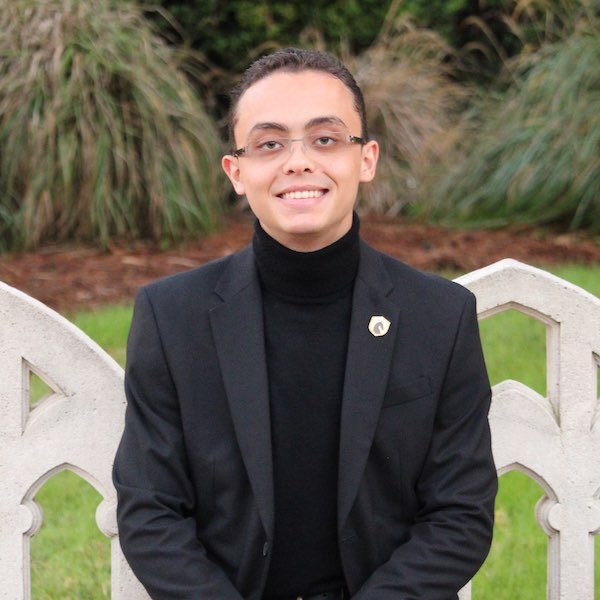Describe the steps you took to obtain your internship.
I had begun taking classes within the Emergency Management and Homeland Security department during the summer. One of their classes, Pathways to Emergency Management, was primarily focused on building professionalism and educating students that were within the department's Emergency Management or U.S. Intelligence certificate tracks. Through taking the class, I learned about the Disaster Analysis Intelligence Laboratory, which worked to compile information from open-source intelligence (OSINT) methods. Near the end of the semester, I approached the professor for further details regarding the lab and the possible internships that he had mentioned previously. I was invited to apply for the lab, and I did. After conducting an interview, I began training to take a formal position in the Fall.
How far in advance did you prepare and begin applying for your experiential learning opportunity?
I hadn't applied for the position until near the middle/end of the summer semester. That being said, students who work in the lab are traditionally required to take "Pathways to Emergency Management," so from a more abstract sense, I had been preparing since I walked in the door.
If you used any Career Center services, resources, or events to obtain your internship/research opportunity/fellowship, what were they? How did they support your application process?
In the past, I utilized Career Center services to get professional reviews on my resume for other positions. However, much of the advice I was given during those reviews are things I still keep in mind and utilize when re-formatting my resume to this day.
Describe some of your responsibilities or duties during your experiential learning opportunity.
As an open-source intelligence analyst, my responsibilities would constantly monitor our various information sources for potential situations that could warrant a report or notification of any of our shareholders. Every day I would come in and work alongside several others on the writing of several reports that would be sent out by the afternoon. Each time we'd critique and assist each other to ensure that information was being delivered as concisely and efficiently as possible. Alongside this were various larger-scale efforts regarding monitoring and reporting on disaster recovery, potential disasters, or threats to shareholder regions.
What was a typical day like "on the job?"
In the morning, we would begin working on several of our daily published reports to be sent out to the various shareholders of the lab. Once we'd write the reports in the morning, we had several morning meetings to collectively discuss and review what aspects could be condensed, excluded, or perfected before sending the reports. Following this, we would typically begin working on any other longer-term, larger-scale reports ranging from extreme weather forecasts, disaster recovery efforts, regional blockades, and a large variety of potential ongoing topics of relevance to the shareholders. Otherwise, and throughout this, we'd monitor our various sources of information for potential situations that would warrant increased attention or potentially an emergency report.
What are some major takeaways from your experience? How will these help prepare you for the next step after graduation?
One of the biggest takeaways I got from this experience was knowing the sheer wealth of potential opportunities and work experiences just waiting around for people to grab them. Additionally, I had numerous personal takeaways that allowed me to focus on my skills and issues that needed stronger focus and development. I will always be grateful for the perspective that this position gave me.
Did this experience help clarify your career path? If yes, how so?
The experience helped open my eyes to a new field I could pursue that I had no real idea was even possible with my major. I enjoyed the work and the experience helped give me the experience, information, and confidence needed to move further in my career path.

Giancarlo Bonilla
"I had numerous personal takeaways that allowed me to focus on my skills and issues that needed stronger focus and development. I will always be grateful for the perspective that this position gave me."
Major: Cyber-Criminology
Current Position: Intern at Disaster Analysis Intelligence Lab (D.I.A.L.)
